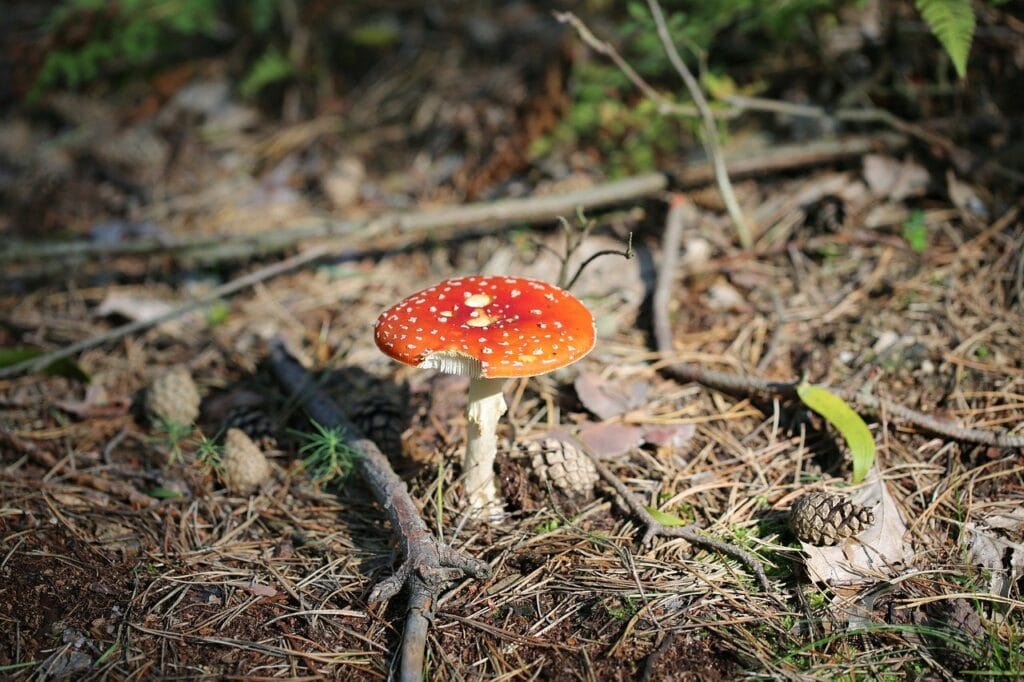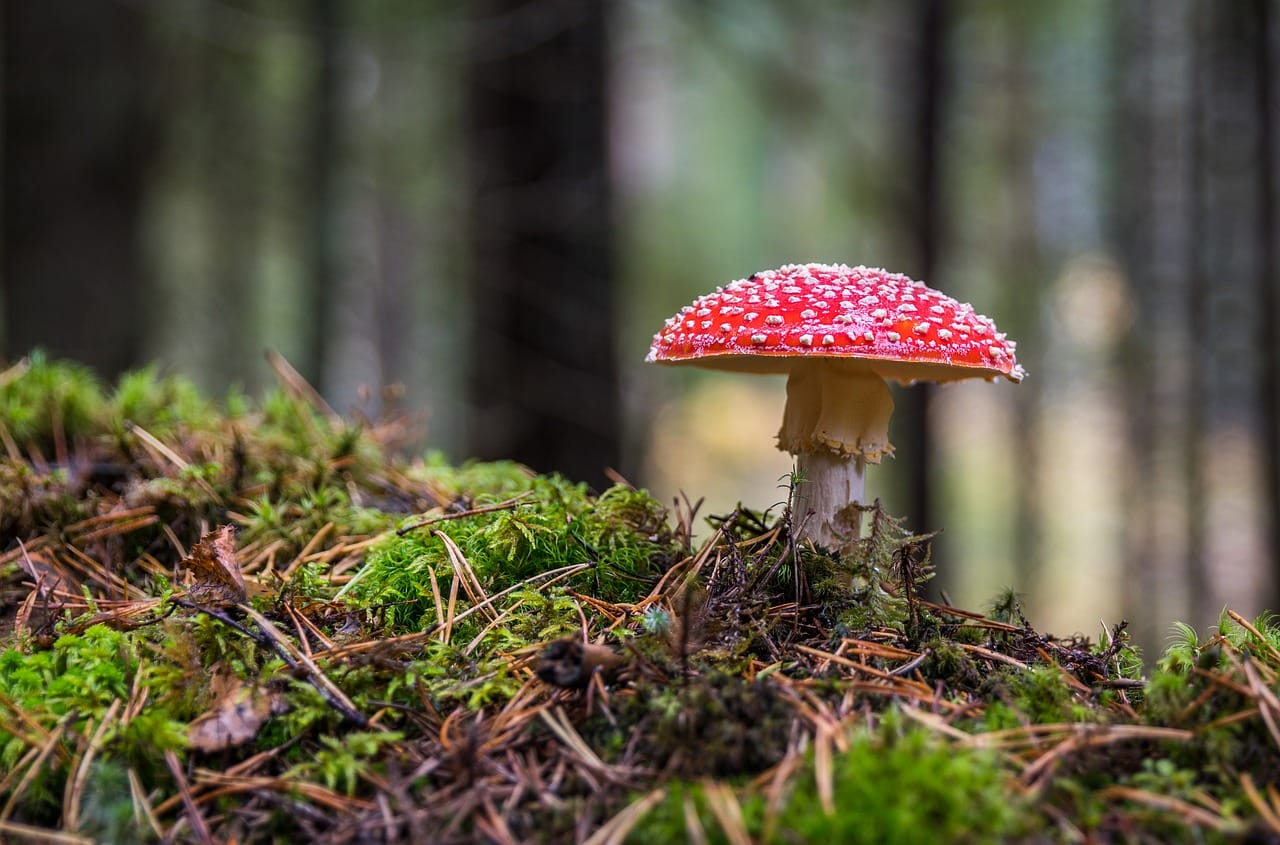Over the course of thousands of years, people have identified and intentionally utilized the psychedelic qualities of certain plants and fungi.
Among these, fungi, particularly magic mushrooms, are widely recognized as a primary natural source of psychedelic substances.
The psychedelic compound psilocybin, found in mushrooms, holds a remarkable place in history, being utilized in both religious rituals and therapeutic practices.
A number of researchers are dedicating their work to exploring the potential health benefits of shrooms online. Current research has shed light on the impacts of psilocybin mushrooms. This knowledge instills hope in many people, triggering a necessary conversation about their integration into Canada’s healthcare system.
Key Highlights:
- Magic mushrooms are rich in the psychoactive substance psilocybin, which holds several potentials for addressing mental health problems in Canada.
- When compared to opioids, psilocybin is safer with a reduced risk of addiction and toxicity.
- Psilocybin demonstrates long-term efficacy in treating depression, with effects that can endure for up to a year.

Getting to Know Psilocybin
Psilocybin, an indole-alkylamine (tryptamine) derived from magic mushrooms, bears structural resemblance with lysergic acid diethylamide (LSD). Its effects encompass hallucinogenic and euphoric experiences, likely resulting from its interaction with serotonin (5-HT) receptors in the central nervous system.
Owing to its interaction with serotonin receptors, premium magic mushrooms exhibit a unique ability to aid in the management of mental health disorders.
The Mental Health and Opioid Crisis in Canada
Common Mental Health Disorders in Canada & Resistance to Treatment
| 2012 | 2022 | |
| Major Depressive Episodes | 4.7% | 7.6% |
| Generalized anxiety disorder | 2.6% | 5.2% |
| Social phobia | 3.0% | 7.1% |
| Alcohol use disorder | 3.2% | 2.2% |
A significant 36.6% of individuals dealing with mood, anxiety, or substance use disorders reported that their healthcare and mental health needs were not being met or were inadequately addressed.
An article from the Canadian Journal of Psychiatry shed light on the attitudes towards seeking treatment among patients with depression. The research carefully examined 1282 patient records from 135 physicians. Two hundred sixty-three patients were identified as suffering from treatment-resistant depression (TRD), equating to a prevalence rate of 21.7% across the country.
Opioid Crisis
An estimated 8 million Canadians, roughly one in five, endure chronic pain. This unmanaged pain can negatively affect various facets of a person’s life.
Healthcare professionals sometimes recommend opioid medications for managing pain. While opioids can provide benefits like pain relief and improved functionality, they also come with potential risks.
Between January 2016 and March 2022, at least 30,843 deaths related to opioid toxicity were recorded in Canada. The peak of these tragic events took place in early 2021, with a staggering 5,368 cases reported. Notably, over 88% of these incidents occurred in the provinces of British Columbia, Ontario, and Alberta.
For Major Depressive Episodes
A study published in the Journal of Psychopharmacology recruited 27 individuals with a long history of depression. The majority of these individuals had been dealing with depressive symptoms for around two years prior to the study. Traditional antidepressants had previously been used by 88% of these individuals, and 58% reported presently using such medications during their depressive episodes.
The study registered considerable reductions in depression post-psilocybin treatment for both groups. Furthermore, the severity of depression was consistently low at follow-up points one, three, six, and 12 months after treatment.
For General Anxiety and Social Phobia
A case study reported in the Croatian Medical Journal in October 2021 examined HTML:
The story focuses on a
A solitary 16-year-old boy, who was suffering from intense anxiety, social isolation, and declining academic performance, sought help at a mental health clinic. His challenges were exacerbated by a learning disability and lack of motivation towards schoolwork, which made group therapy overwhelming and ineffective.
Remarkable improvements were noted after three psilocybin sessions over 18 months. The boy’s anxiety decreased significantly, and he started to effectively communicate with his peers and teachers. He was more expressive with his emotions, actively engaged in group therapy, and improved his interpersonal relationships.
For Alcohol Use Disorder
A recent clinical trial, highlighted in a JAMA Psychiatry study published on August 24, revealed the potential of psilocybin combined with psychotherapy for the treatment of alcohol use disorder. The progress of 93 patients with the disorder was tracked for 32 weeks.
Among the 48 individuals who underwent psilocybin-assisted therapy, there was a significant 83% decrease in alcohol consumption within eight months of the first dose, compared to a 51% reduction in the placebo group. Almost half of the participants who received psilocybin ceased drinking completely.
Opioid Crisis
Elena Argento, a postdoctoral fellow at the University of British Columbia and BC Centre on Substance Use, is currently conducting research on the medicinal applications of psychedelics.
Argento explains that psilocybin can reduce addiction risks in two ways: it impacts both neurobiology and psychology. She highlights the transformative experiences psychedelics can produce, characterized by a profound sense of awe and self-transcendence. These experiences often lead individuals to discover new meanings and purposes in life, which can potentially trigger behavioral changes, especially in relation to addiction.
In a recent longitudinal study conducted by Argento and the BC Centre on Substance Use, there was a significant decrease in the probability of ongoing daily illicit opioid use among participants who had recently used psychedelics or had done so in the past six months.
Argento’s 2018 study also indicated that psychedelic use could act as a protective factor against the link between prescription opioid use and suicide risk.
An earlier study found a connection between psilocybin use and a lower risk of opioid use disorder. This research suggested a 40% reduced risk of opioid misuse and a 27% lower risk associated with opioid dependence over the over the previous year as a result of psychedelic usage.
The Need for Health Canada and Other Regulatory Agencies to Consider Psilocybin as Part of Canada’s Therapeutic Approach
Despite the recognition of Psilocybin’s potential positive effects on Canadians’ mental health, its accessibility remains challenging. Health Canada allows medical professionals to prescribe this treatment through the Special Access Program. However, the stringent rules of the program present a significant barrier for many professionals and patients.
The therapeutic use of mushrooms containing psilocybin could revolutionize mental healthcare in Canada, offering potentially transformative benefits. Instead of depending on traditional treatments like pharmaceuticals or opioid replacement therapy, which often yield less effective results, psilocybin therapy presents an alternative with the potential for significant and lasting impacts.
There’s evidence suggesting that psilocybin therapy could have enduring benefits, potentially saving patients substantial costs on less effective treatments. Additionally, research indicates that psilocybin is relatively safe, with low toxicity, minimal misuse risk, and infrequent overdose cases.
Where is Psilocybin Available for Purchase Online?
Canadians who find it challenging to access psilocybin therapy have the option to buy magic mushrooms online to alleviate their current conditions. They can choose from a range of magic mushroom products, from high-dose shrooms to magic mushrooms for microdosing.
High-dose shrooms consist of psychedelic mushrooms available in different formats, like dried magic mushrooms, edibles, or drinks, consumed for their hallucinogenic and therapeutic properties.
Microdosing magic mushrooms refers to products with small amounts of magic mushrooms. These products are available in capsules, shroom edibles, or shroom tea. Buying shrooms online offers an alternative method to subtly enjoy the benefits of these mushrooms. Magic Mushrooms Online Canada exclusively sells high-quality magic mushrooms online.
Is Psilocybin a Good Fit for Canadian Healthcare?
Psilocybin is often misunderstood due to its recreational use. It’s important to note that psilocybin has a safer profile compared to opioids and other drugs commonly prescribed in healthcare environments.
Increasing evidence suggests its potential benefits, similar to those of marijuana, in treating various mental health conditions.
Magic mushrooms, from a health and wellness standpoint, have been utilized to bolster mental health therapies and facilitate personal development.
What potential hazards and side effects can magic mushrooms have?
Magic mushrooms can produce a range of effects, both advantageous and disadvantageous. These might include hallucinations, changes in perception, and psychological alterations. On the negative side, they may result in nausea, dizziness, and in exceptional situations, psychological turmoil. It’s crucial to use magic mushrooms with prudence and respect, acknowledging the possible risks associated. Always consult a healthcare expert before initiating any new routine that involves magic mushrooms.
Is it secure to purchase magic mushrooms online?
Purchasing magic mushrooms online can be secure, as long as you select a trusted source. It’s essential to do extensive research on the product, brand, and the online dispensary prior to finalizing your purchase. Customer reviews and ratings are beneficial indicators of product quality and service reliability. Always opt for dispensaries that give precedence to customer safety and satisfaction, and provide secure payment methods.
Is it possible to cultivate my own magic mushrooms?
Indeed, home cultivation of magic mushrooms is feasible and can be a rewarding endeavor. However, it necessitates specific conditions and a comprehensive understanding of the growth process. There are numerous kits and guides available online to aid you in your cultivation journey. However, be aware that the legality of growing magic mushrooms differs by region, so ensure compliance with your local laws and regulations.
experiences. In the realm of wellness, some people opt for a more measured approach, consuming small quantities of mushrooms to gain their benefits without inducing hallucinations.Articles That Might Interest You:





